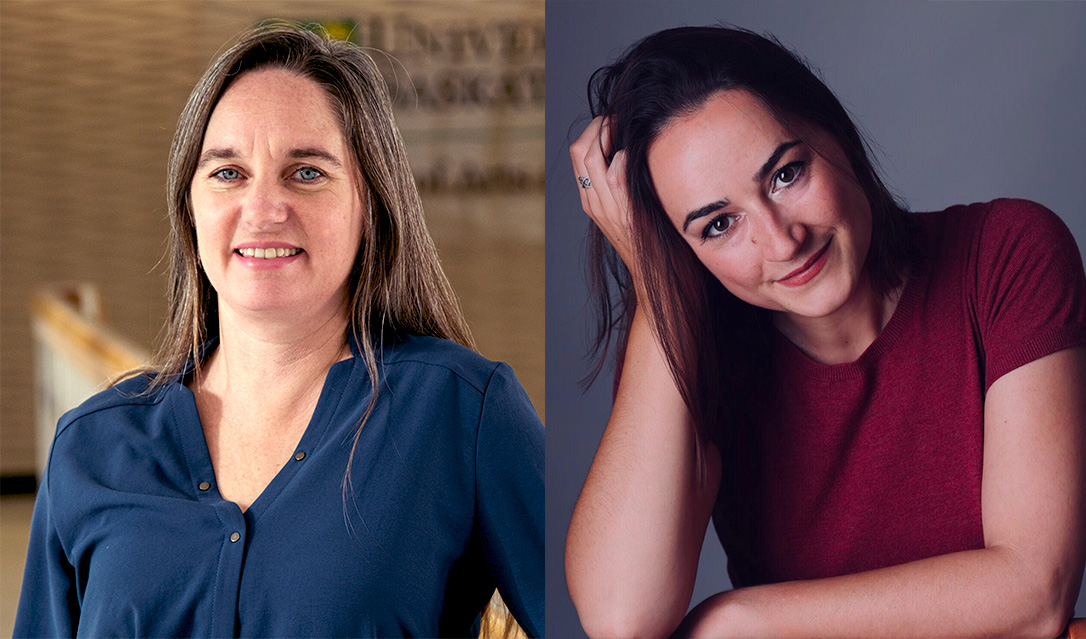
USask researchers explore untold history of psychedelics
A University of Saskatchewan (USask) researcher has led the creation of a new book which compiles stories of the history of psychedelic drugs around the world, both clinically and culturally.
In the worlds of medicine and history, there is plenty the public doesn’t know or understand about the use of psychedelics – which is one of the reasons Dr. Erika Dyck (PhD) chose to assemble a book cataloguing research and essays on precisely that.
“Over the last 10 years we’ve seen a resurgence in interest in the potential benefits of psychedelics,” she said. “We wanted to look at not only the clinical context … but different ways psychedelics got out of that clinical context.”
Published by MIT Press, Expanding Mindscapes: A Global History of Psychedelics is a compilation of the discovery, use and cultural impact of various psychedelic medicines such as LSD and psilocybin (the compound found in “magic mushrooms”) throughout the 20th century.
While much of the accepted history and understanding of psychedelics comes from a North American – and primarily United States – perspective, the new book edited by Dyck and historian Chris Elcock includes analyses from around the world.
Dyck, a professor of history in the College of Arts and Science and Canada Research Chair in the History of Health and Social Justice, said psychedelic drugs have a “distinctive” place in medical history due to their role in medical contexts and widespread cultural movements.
“We’ve now got 20 articles that really showcase a dynamic and exciting history of psychedelics that takes place outside of Harvard, outside of Berkely, outside of San Francisco,” Dyck said. “We’re excited to put forward this innovative and novel way of understanding the depth and dynamism of psychedelics as it stretches around the globe.”
In an effort to explore the role of psychedelics around the world, Dyck put out a call for papers on the role of psychedelics in different cultures, which formed the basis for the book.
Dr. Zoë Dubus (PhD), USask’s Banting Postdoctoral Fellowship recipient in 2023, penned a chapter of the new book which focuses on the role gender played for both doctors and patients for the use of psychedelics in a clinical context in France during the mid-1900s.
Dubus said women were prescribed psychedelics much more often as part of different therapies, and women in France did not have the same ability to refuse them as men – because attempts to refuse medication were seen as “aggravations” of their illness.
“My research is an example of … how the cultural contexts in which psychedelics are taken impacts the way we use them,” she said.
Dubus said including non-North American perspectives in the book was important to show the diversity of research.
“Today, we have the ‘psychedelic renaissance’, we study the benefits of psychedelics again and we use the techniques of psychedelic therapy … But in Europe in the ’50s and ’60s there was another kind of therapy called ‘psycholytic therapy,’” she said. “Many psychedelic therapists don’t know much about it. I think it’s important for historians and actual medical practitioners to know there were different ways of using psychedelics at that time.”
Psychedelics have emerged as an “attractive” topic to research because of the way the drugs have been used clinically, dropped out of favour and then resurfaced, Dyck said. Both she and Dubus said they hoped the new book would highlight the diversity of influence psychedelics have had in communities and cultures around the world.
“We hope that this book shows that not only are ideas about psychedelics changing, but ideas about psychedelics are being drawn from different parts of the world and have different impacts,” Dyck said.
Some little-known facts about psychedelics:
- Psychedelics are not addictive – Dubus said most people don’t really understand that psychedelics are not inherently addictive. Many of the substances that are government-regulated alongside psychedelics are much more dangerous than psychedelics, and Dubus said there are barriers preventing them from sharing more information about safe consumption of psychedelics.
- Psychedelics are not toxic – According to both Dyck and Dubus, there has been no recorded “upper limit” of psychedelic use that will result in fatal toxicity for humans – though that doesn’t mean the drugs should be used carelessly.
- The term “psychedelic” was coined in Saskatchewan – Though the origin story of LSD comes from Switzerland, Dyck said the term “psychedelic” was first used by British psychiatrist Humphry Osmond while working to reform the psychiatric hospital in Weyburn in the 1950s.
- “Trance music” was a result of the United States’ war on drugs – The evidence is circumstantial, but Dyck said the United States’ prohibition on drugs led many dealers and suppliers to flee the country – with some ending up as far as Goa, India, where psychedelics and the evolution of psychedelic rock is credited with inspiring the earliest trance musicians in the 1980s and ’90s.
Together, we will undertake the research the world needs. We invite you to join by supporting critical research at USask.

